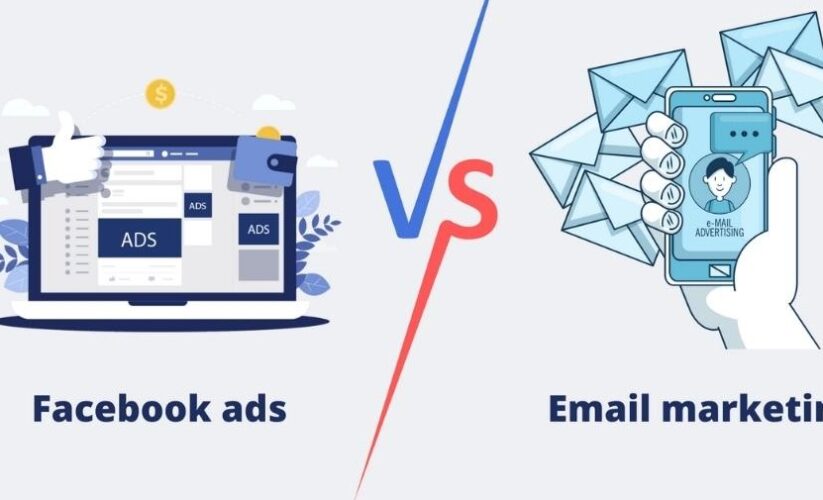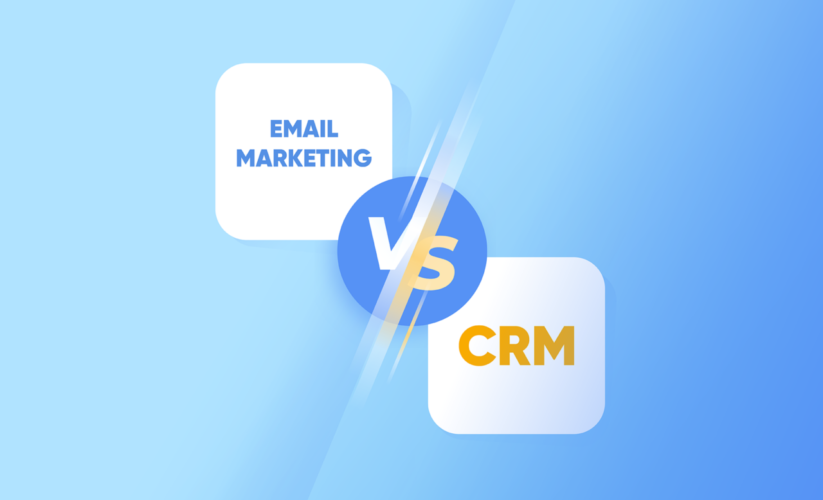
Email Marketing vs Facebook Ads: Which is Best for Your Business?
Which is Right for Your Business?
When it comes to marketing your business effectively, a common debate arises: Email Marketing vs Facebook Ads—Which is better? These two powerful channels offer unique advantages, but the right choice depends on your business goals, audience preferences, and budget. In this post, we’ll break down their benefits and limitations to help you make an informed decision.
What is Email Marketing?
Email marketing is a way of marketing that sends targeted messages to a subscriber’s inbox. These may include newsletters, promotional offers, product updates, or personalized content.
Key Features of Email Marketing:
Personalized Communication: Email allows for segmentation, thus enabling the personalization of messages based on user behavior, preference, or demographic data.
Affordable: Email marketing offers one of the best ROIs when compared to all other channels; its minimum upfront cost offers a return in several cases. According to a study conducted by Campaign Monitor, for every $1 spent, businesses make approximately $36 through email marketing.
High level of engagement: The emails go straight into the inboxes of users who have subscribed and thus have better engagement possibilities.
What are Facebook Ads?
Facebook Ads are a paid promotion on the social media platform to reach out to targeted audiences. These ads can appear in users’ news feeds, stories, or even Instagram-a subsidiary of Facebook.
Key Features of Facebook Ads:
- Huge Reach: With more than 2.9 billion monthly active users, Facebook offers access to a wide and varied audience.
- Precision in Targeting: One can target users based on age, location, interests, behavior, and many other categories.
- Visual Appealing: The advertisement in Facebook comes in the forms of videos, carousels, and more engaging formats.
Email Marketing vs. Facebook Ads:
The Main Differences
- Audience Targeting
- Email Marketing: Targets people that are interested enough to sign up with your brand by being on your emailing list. Ideal for lead nurturing and loyalty building.
- Facebook Ads: Allows for reaching a broader audience, including those unfamiliar with your brand. It’s perfect for brand awareness campaigns or expanding your reach.
- Cost Efficiency
- Email Marketing: Generally, the cost of email marketing platforms like Mailchimp or Constant Contact is low compared to the potential ROI.
- Facebook Ads: Costs depend on campaign objectives, audience size, and ad quality. While effective, it can become expensive if not optimized.
- Engagement Levels
- Email Marketing: Subscribers are extremely engaged because they have subscribed to your content. However, it takes constant value that people remain interested in your emails.
- Facebook Ads: It all depends on targeting and ad creativity. Ads have to stand out from the crowd in a busy social media feed.
- Data and Analytics
- Email Marketing: Granular analytics about open rates, CTR, and conversions.
- Facebook Ads: Strong metrics include impressions, CTR, engagement rates, and audience demographics.
Pros and Cons of Email Marketing Pros High ROI: As mentioned, email marketing is among the mediums offering the best ROI in the industry.
- Personalization: You can deliver content that resonates with specific audience segments.
- Ownership of Audience: Unlike social media platforms, your email list is entirely owned by you.
- Cons Deliverability Issues: If not crafted well, emails may go to spam folders.
- Requires Opt-In: It takes a great amount of time and effort to build an email list.
Pros and Cons of Facebook Ads Pros: Massive Reach: Good for introducing your brand to new audiences. Flexibility: Good for any objective, from awareness to conversion. Quick Outcomes: It ensures that ads give quick visibility and engagement. Cons: Ad Fatigue: Overexposure to the same creatives reduces returns. Cost: If not optimized properly, ad costs go up very fast. Case Studies: When to Use Each Scenario 1: Small E-Commerce Store Objective: To increase sales during some holiday season.
Recommendation: Facebook Ads, as the platform is able to showcase products through dynamic ads and retargeting for higher visibility during peak shopping periods. Scenario 2: A SaaS Company Objective: To build subscribers in view of an upcoming product launch. Recommendation: Email marketing, since it is a potent tool to nurture leads and keep prospects informed about the launch. Scenario 3: A Local Restaurant Objective: Attract new customers and retain existing ones.
How to advise: Do both. Utilize Facebook ads to promote and then use email marketing to notify already existing patrons of updates and deals.
Combining Email Marketing with Facebook Ads to Get the Greatest Value
Before deciding between email marketing and Facebook ads, many businesses are integrating the two methodologies.
1. Retargeting Subscribers on Facebook
Upload your email list to Facebook Ads Manager and create a custom audience for retargeting. This ensures you’re reaching the same audience across multiple channels.
2. Collecting Emails Through Facebook Ads
Use lead generation ads on Facebook to grow your email list. Offer a valuable incentive, such as a free e-book or discount, to encourage sign-ups.
3. Omnichannel Messaging
Deliver your message consistently on both platforms. For example, a promotional email can be supported at the same time through a Facebook ad campaign.
How to Choose Between Email Marketing vs Facebook Ads?
It all depends on several variables:
Budget: If limited, email marketing gives better ROI.
Objective: Long-term relationship building, it’s best to use email marketing. For short-term brand awareness, Facebook Ads work wonders.
Target Group: If your target group is highly active on social media, then Facebook ads will work better.
Conclusion:
It is not a one-size-fits-all decision between email marketing and Facebook ads. Each channel has its unique strengths that will fit different business goals. Understand the nuances of each, evaluate your objectives, and you can make an informed decision. The best digital marketing strategies usually involve a combination of tools in a cohesive and impactful way.
At Blog DevZev, we value the most accurate, reliable, and expert-driven content to help you make the best decisions regarding marketing for your business. Be it a startup or an established brand, the right strategy will lift your digital presence and lead you to success.




